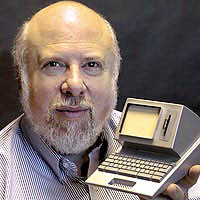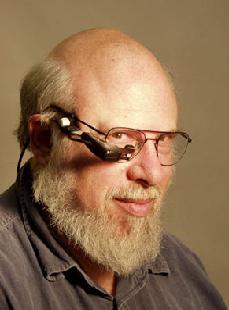
He was really interested in how computers could fit human beings in ways that don't break us. There's an ergonomics of how relationships work, there's an ergonomics of societies. Just like there's an ergonomics of our body, there's an ergonomics of our mind called cognetics. When you sit in a chair, there's some ways that your body bends and folds that work for us and there are other ways that our body bends and folds that give us backaches. How has your father’s presence as a very early developer at Apple affected how you think about all this?įor him it was always this question of, how do we understand the ergonomics of us as human beings? So the ability to diagnose the system and change the base metaphors by which we see the world together actually has the opportunity to change almost everything. That fundamental paradigmatic view is changing, that just connecting people isn't enough, and that it can cause massive damage. There was a fundamental belief that connecting people was good, as a paradigm. At the very top is paradigmatic change, the base metaphors that govern everything about how you think: that you can own land, that money is good, all of these fundamental paradigms that set the parameters by which everything else runs.Įven a couple years ago, we would talk about the ways technology was replacing the social fabric and very few people would listen. It starts with the least powerful and goes up to the most powerful. It creates a kind of balancing feedback loop.ĭo you ever feel like the work you’re doing is infinitesimal in the face of all these massive, all-encompassing problems?ĭonella Meadows, a systems change thinker, identifies 12 places in a system where you can intervene to make change. But at some point, all of those ad dollars that are created and profit that happens from scrolling actually goes into funding local journalism. You could imagine pairing something like infinite scroll with a set of policies that says, "Cool, scroll as much as you want. So there's a threshold now: any amount above a certain amount of energy use all has to instead be reinvested into renewables.

In California, there's a set of perverse incentives where power companies want to get as much electricity usage from you as possible because that's how they maximize profit. So how can we effectively put guard rails on new tech? Technology is not just ripping apart the social fabric, it's replacing our social fabric with something much more brittle. That's what's inhumane-that we are forced to use systems which are fundamentally unsafe for the things that we need. Part of the way they stay in contact with their friends or their family, or loved ones around the world. A year later, he co-founded the Center for Humane Technology, a nonprofit dedicated to fighting the more pernicious aspects of our digital lives.įor many people, it's become part of their job or the way they support themselves. Five years later, they launched the results of their talks: the Earth Species Project, a quest to understand what animals are saying. The two spent the next five years talking about how they could spread their gospel of empathy and listening first. Around the same time, he met Britt Selvitelle, a computer scientist working with the founding Twitter team. Rather than turn cynical, Raskin committed to finding ways to use technology for good. Or, even worse, by political parties across the globe to radicalize citizens and get them to vote for figureheads like Donald Trump and Brexit. “That was when my stomach started to drop.” If we had these tactics all along, why weren’t we using them to combat racism? To get people to stop using single-use plastic or driving inefficient cars? Instead, they were being used by big corporations to get people to spend more money.

“We could help people eat 11% healthier,” he recalls.

The research team found that when they applied the subtly persuasive tactics used by consumer companies to their own work, they got the results they wanted in their studies. One of those startups, Massive Health, was designing technology to get people to eat healthier. In 2006, he invented the infinite scroll, the now-ubiquitous feature that seamlessly delivers ever-more content to a passive user.īut then something happened that stopped him in his tracks. His early 20s saw him joining Mozilla to build an early version of Firefox, while founding a handful of startups, including Songza, which now powers a large chunk of Google Play. The younger Raskin's first venture was a crowdsourced map for NGOs to use after the 2010 Haiti earthquake. And his son followed his father into tech, first joining him at age ten, for a talk on user interfaces.

His father, Jef Raskin, was an early member of the Apple team (like, in the garage early). Aza Raskin, an advocate for ethics in technology, was born and raised in Silicon Valley.


 0 kommentar(er)
0 kommentar(er)
